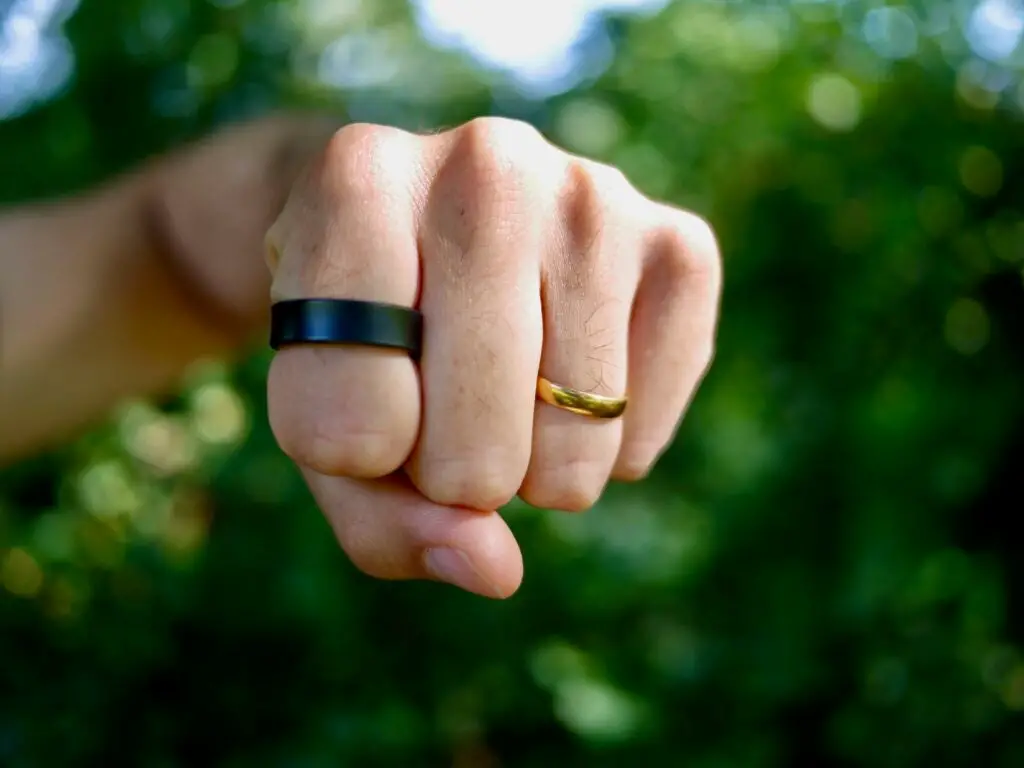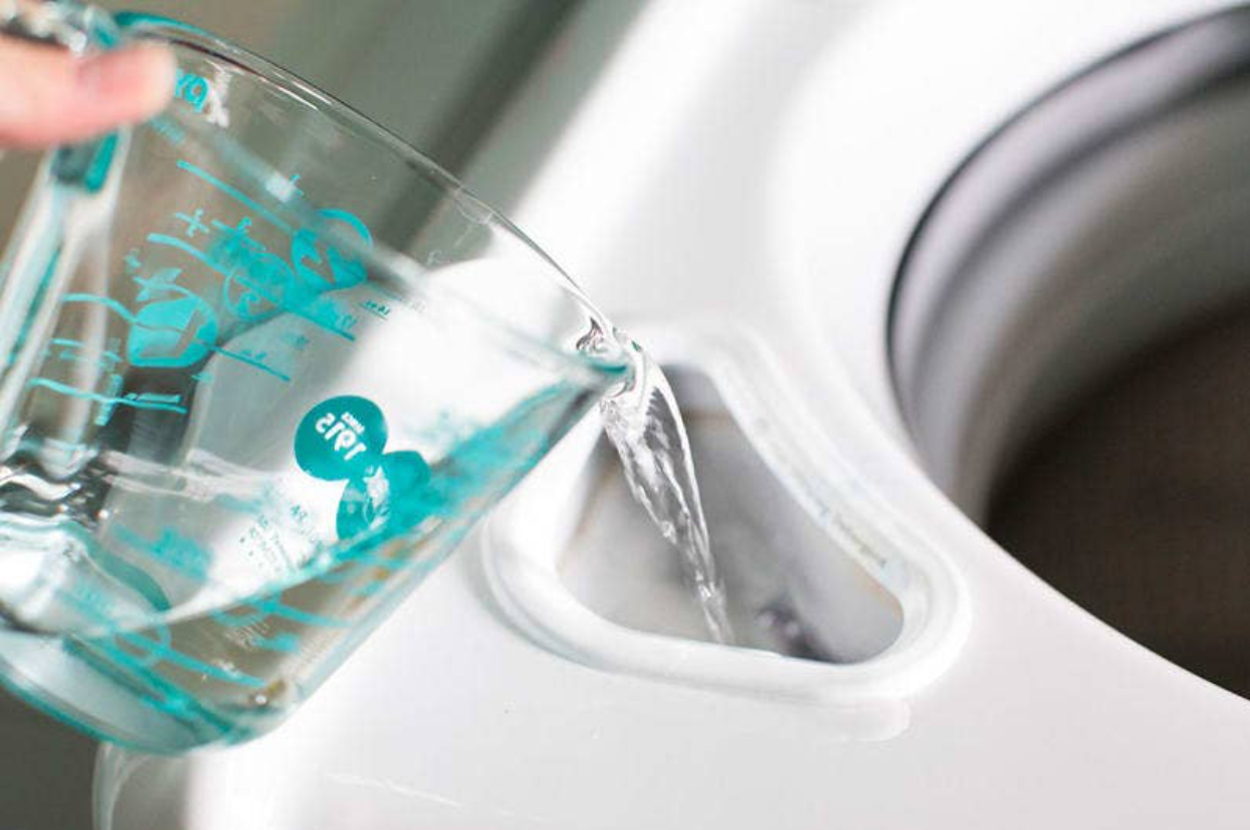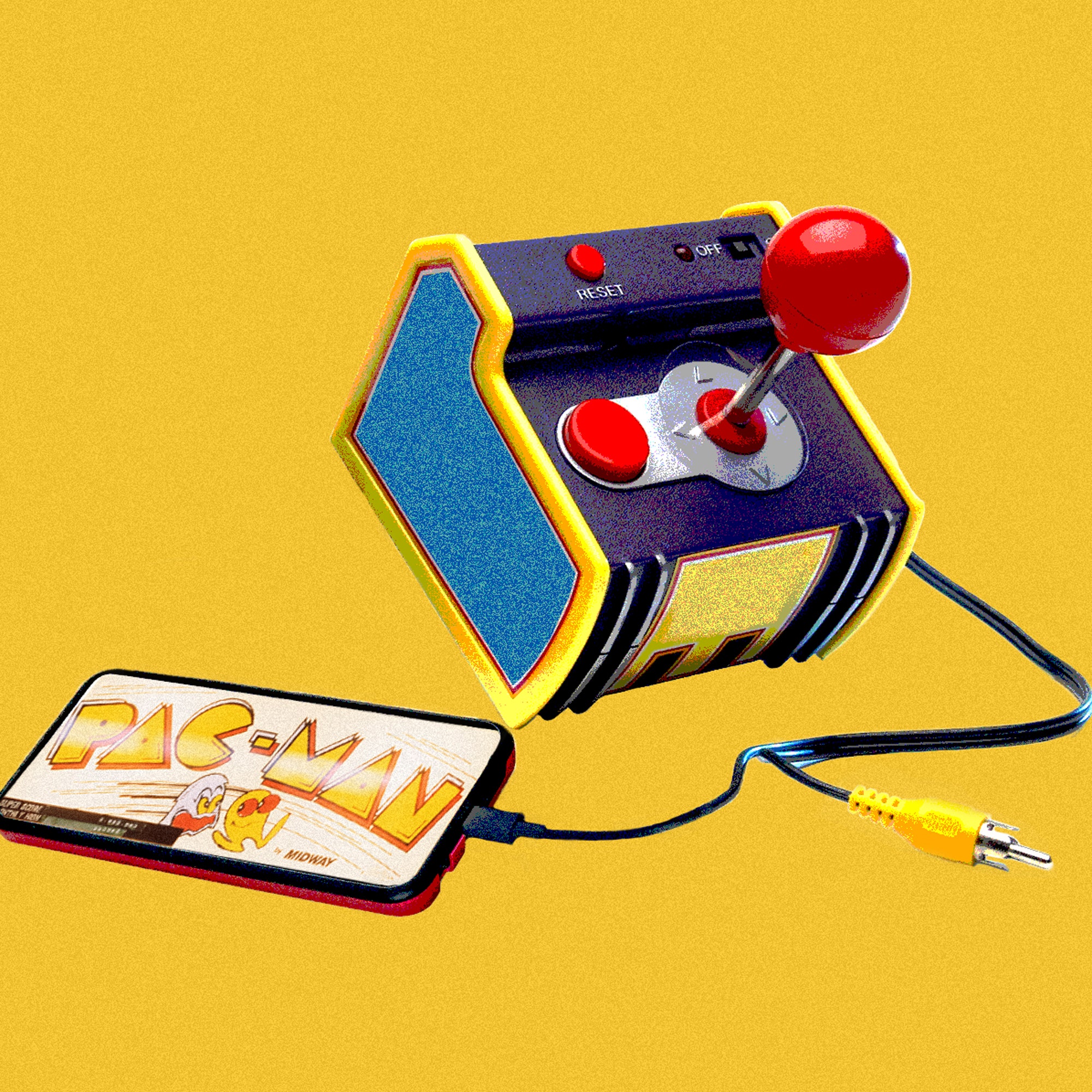Verdict
For a first effort, the Samsung Galaxy Ring is a strong start with some superb elements, in terms of accuracy and coaching.
But it does less than rivals, and feels lightweight against a Galaxy Watch. It will suit those in the Samsung ecosystem looking for a smart ring, but for those with no attachment to the ecosystem, there are better options from Ultrahuman and Oura right now.
Pros
- Excellent sleep tracking accuracy
- Emphasizes practical sleep coaching
- Energy Score is user-friendly and insightful
- Sleek design and very comfortable to wear
Cons
- Offers fewer features than competitors and the Galaxy Watch
- High price (but no subscription fee)
- Inconsistent heart rate data and unreliable SpO2 readings
Key Features
- Up to 7-days battery life:Achieved via the included charging case.
- Available in 3 coloursGold, Black or Silver.
- Tracks steps, heart rate, temperature and sleep:Discreet, all-in-one tracking.
Introduction
Smart rings have been around for several years, but the Samsung Galaxy Ring is the first smart ring by a big-name brand to hit shelves.
Fitness and health rings have caught the imagination of wearable users thanks to their long battery life and discreet design – especially when compared to bulky smartwatches.
So what does the Samsung Galaxy Ring bring to the table? What does it do? And should you buy it? I’ve spent the last few weeks putting it to the test.
It’s important to remember first that the Galaxy Ring is only compatible with Android smartphones. There’s less emphasis on using a Samsung smartphone here, but if you don’t pair it with a Galaxy S24 or similar, you’ll miss out on some Galaxy AI features.
Price and Competition
- Priced at $399/£399 with no subscription fee; higher than competitors like Oura
- Comparable to Ultrahuman Ring but more expensive with no clear price advantage
- Only compatible with Android, with added features for Samsung users
Given Samsung’s manufacturing power, you might have thought the Galaxy Ring would be priced more aggressively.
It costs $399/£399 to buy, but there’s no ongoing subscription fee to worry about. It’s the same price for black, silver, or gold.
How does that compare? Well, the Oura Ring 3, which is the best overall smart ring available now, starts at $299/£299 for a basic design and colourway, but you do need to pay an ongoing subscription of £5.99/$5.99 per month.
There’s also the Ultrahuman Ring Air. It stacks up to the Samsung Galaxy Ring favourably and costs $349/£329, again, with no ongoing subscriptions.
So the Galaxy Ring is a pricey option – even against Oura, and you’d have to wear one for 16 months before breaking even on cost.
Design and Comfort
- Slim, lightweight, and comfortable design
- Not that durable for heavy workouts
- Seven size options, and three colours
The Samsung Galaxy Ring is one of the most comfortable smart rings I’ve worn. It has a slim and lightweight build that’s barely noticeable when it’s on.
It’s slightly concave, which apparently a choice to ward off scratches. I didn’t pick up any in the testing period on the surface of the ring itself, so the design clearly works. But I did scuff the side using weights in the gym, so it’s not robust enough for that kind of workout. It’s slimmer, lighter, and more discreet than the Oura Ring 3.
There’s a little notch on the outside, which enables you to ensure the sensors are placed under the finger where they do their best work. The ring will twist around, and it’s not the end of the world if you find the sensors misaligned – but it’s a handy visual guide.
Overall, it’s a well-designed and comfortable smart ring especially in comparison to what’s out there.
Features and Sleep Tracking
- Doesn’t do anything the Galaxy Watch range can’t
- Excellent sleep tracking skills
- The addition of Energy Score is welcome
Now we get into the nitty gritty of what the Galaxy Ring does. It’s important to acknowledge that it does nothing that the Samsung Galaxy Watch can’t.
In fact, it does far less than the Samsung Galaxy Watch 7 even though it costs more. That makes it slightly more challenging to justify.
In short, the key features for health tracking are:
- Sleep tracking and coaching
- Energy score
- Steps and activity monitoring
- Heart rate tracking and analysis
- Workout tracking and detection
- Stress detection
- And it’s worth mentioning health features that DON’T make it to the Galaxy Ring:
- ECG
- Blood pressure tracking
- BIA body composition analysis
- AGE metabolic health tracking
I had high hopes for Samsung’s sleep tracking after the excellent performance on last year’s Galaxy Watch 6, and my faith was rewarded. This is a good sleep tracker.
There’s a curious design quirk where Samsung displays your time in bed as a main metric, and actual sleep in the small print – an odd choice I can’t get on board with. But both numbers checked out within minutes of the Oura Ring and Whoop 4.0, two of the best sleep trackers on the market.
There’s the usual array of sleep stages and other meaningless information that’s out of your control, but Samsung’s sleep coaching feels better thought through than most rivals. It assigns you a ‘sleep animal’ to help you understand your habits, and you can choose a goal to work towards, with the ever-important sleep consistency shown on the main Galaxy Ring dashboard.
The sleep coaching is packed with actionable suggestions and good habit-building techniques. It’s a strong offering.
Accurate sleep tracking is important because it forms the basis of Samsung’s new Energy Score. This recovery metric is now a wearable tech staple and shows you how rested and prepared you are for the day ahead.
I found the Energy Score responsive and reflective of my own perceptions of my recovery. It was sensitive and nuanced, with helpful insights into what might be affecting your energy levels.
Another key metric is the tracking of steps and activity, and you’re prompted to assign your goals during set up. The accuracy of these metrics also stood up, and a monster day that saw around 20000 steps tallied up within 1000 steps of my Apple Watch Ultra 2. A decent similarity given the huge numbers.
Heart Rate Data
- Offers key health metrics but lacks advanced features like ECG and Blood Pressure tracking
- Heart rate tracking shows some inconsistencies, with problematic data accuracy in some cases
Heart rate performance was something of a mixed bag, with good overall accuracy punctuated by some problematic data.
In terms of overall stats, my resting heart rate was in line with my established baselines, and trended with my Whoop 4.0 and Oura Ring. Every device has nuances about when it establishes resting heart rate, so these data points don’t have to be exactly the same but show a good trend.
Samsung and Whoop show my average resting heart rate the same at 46 bpm. Likewise, Samsung showed a good correlation with Oura on respiratory rate, which was both around 12.9 bpm.
After being out and drinking alcohol on Saturday night, both showed a spike in resting heart rate, but the Galaxy Ring showed a larger one. Again, it depends on what time of night and how this is sampled, so the trend is there, even if the data isn’t.
But there are problems. On more than one occasion I got large outages in a night’s sleep of heart rate tracking, one time even flatlining for the whole night. SpO2 data was also problematic, with night’s data showing occasional drops into dangerously low blood oxygen saturations.
So while the surface data was good, there were troubling accuracy episodes behind the scenes.
One curious part of the Galaxy Ring is that it doesn’t spend time establishing a baseline for your body and stats – and that does make the data a little less personalised and relevant than the competition from Oura and Whoop.
With Oura, you need to wear it for two weeks before it will start giving you any data, and establishing a baseline of what’s normal for you is an important step. And it means most data is compared to what’s normal for you. That makes it feel less personal to you.
Samsung starts offering you guidance and insights right away, and this can skew some of the early advice. If you happen to be sick, ill, or go out on a crazy weekend session just as you don the ring, it can skew how Samsung Health views your bedtime habits, resting heart rate, and other metrics.
It’s also missing newer features such as Cardio Age, VO2 Max, or things like circadian rhythm windows and other analysis seen on Oura and Ultrahuman options. It’s more stripped back and less in-depth—but this is a first gen product, and a very good start.
Fitness Performance
- Better than most smart rings for fitness but still not ideal for serious workouts.
- Automatic workout detection works fairly well but lacks accuracy in tracking details.
Smart rings are bad workout partners – and there’s not been a fitness ring on the market that I would recommend for working out. The Samsung Galaxy Ring is much better than most, but it’s still not a natural partner.
The lack of screen means that it’s not suitable for live feedback, but if you’re looking to get credit for working out within your Energy Score and activity metrics, the Galaxy Ring does a good job.
I used it in the gym and notably scuffed the side on weights in just one session, so it’s best avoided for lifting.
You can track runs if you take your smartphone with you to handle GPS data – and it’s best to officially start and stop the session on the Samsung Health app. The workout was well recorded and actually, the performance was good. Heart rate can tend to be woeful during runs on smart rings, but the Galaxy Ring stood up well, and displayed useful data on the run.
Samsung has added automatic workout detection which worked far better than I expected. Runs were not tracked accurately – they’re unlikely to be if you just run out wearing a ring with no GPS or smartphone – but some of them weren’t far out.
A 7.5 km run was tracked at 7 km. Another 12 km run was tracked as 10 km. So this isn’t good data, but it’s good enough to make sure that your Energy Score reflects the fact you worked out and offers an understanding of the intensity involved.
I also don’t like how there’s not a dedicated area of the app for ‘proper’ workouts, and now long-term analysis of fitness.
In smart ring terms, the Samsung Galaxy Ring does a good job of tracking workouts if you manually specify that you’re working out. The automatic workout detection does a job, but only enough to improve your Energy Score and recovery data. It’s better than most rings out there, but not a serious workout tracker for those serious about performance.
Battery Life
- Battery life is comparable to competitors, lasting 5-6 days on average
- Innovative charging case adds convenience for on-the-go charging
The battery life of the Samsung Galaxy Ring doesn’t break new ground, but will likely be music to the ears of anyone who used the Galaxy Watch series, including the Galaxy Watch Ultra.
Samsung claims that it will last around 7 days, and you’ll get 30% extra battery life if it’s paired with a Galaxy smartwatch.
Over the course of the review period I performed several battery cycles and found that it would usually last five or six days, with an average drop-off of around 15% per day, including a full night of sleep tracking.
That stacks up similarly to Oura, which will also last seven days between charges.
What I do really like about the Galaxy Ring is the charging case. This nifty little ring box enables you to charge on the move or plug it into the mains. I discovered the Galaxy Ring was out of juice one morning, popped it in the charging case, and gave myself around 40% charge in the hour it took me to travel to play football.
Having that flexibility is a huge bonus and kudos to Samsung for getting that right.
Latest deals
Should you buy it?
You’re deep in the Samsung ecosystem
Samsung smartwatch users looking for a smart ring for more discreet health tracking will love the way this integrates into Samsung Health.
You’re after the most in-depth tracking
If you’re looking for the absolute best smart ring and have no connection to Samsung, Oura and Ultrahuman win for the sheer depth of insights.
Final Thoughts
The Samsung Galaxy Ring feels like a first-generation product – and it offers a relatively limited health and wellness tracking experience at a big, chunky price tag. It feels as if Samsung is actively testing the water here, and while a good smart ring, there are lots of areas I would like to see improved in the inevitable sequel.
If you want to buy a good Android-compatible smart ring, then Oura Ring 3 and Ultrahuman Ring Air both just pack more features and more insights.
Users of Samsung Galaxy smartwatches will enjoy how the Galaxy Ring plays into that ecosystem, but this is a high price tag to pay for a companion device that doesn’t do anything unique. It simply offers you a chance to get sleep data without having to wear a watch to bed.
So Samsung has produced a solid smart ring and a good performer, but one that doesn’t displace the smart ring big boys, nor is it a must-have purchase for anyone other than ardent Sammy fans.
How we test
We thoroughly test every smart ring we review. We use industry-standard testing to compare features properly and we use the ring as our main device over the review period. We’ll always tell you what we find and we never, ever, accept money to review a product.
Thorough health and fitness tracking testing
Worn as our main tracker during the testing period
You might like…
FAQs
Does the Galaxy Ring work with an iPhone?
No, Galaxy Ring is Android only – and some features require











